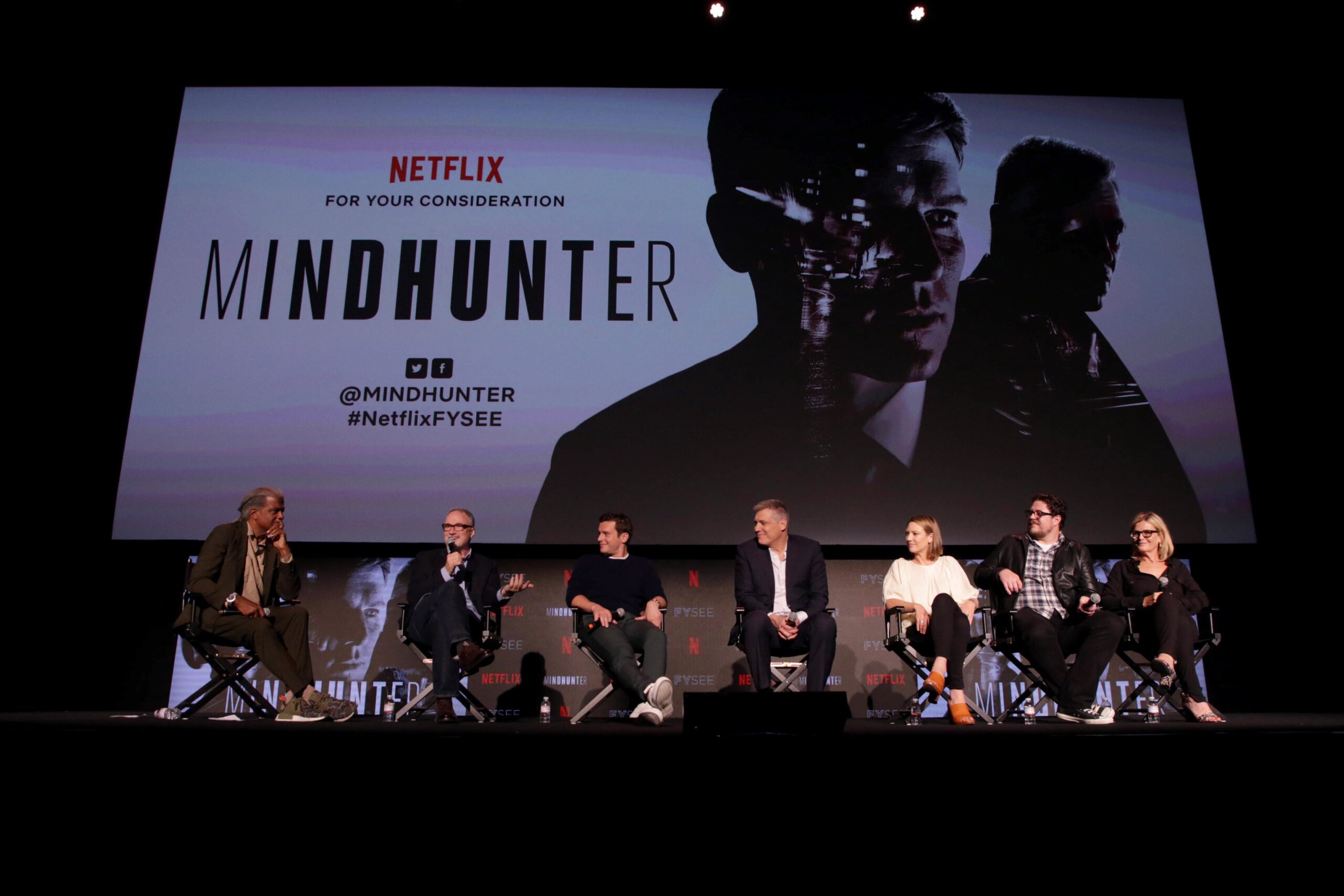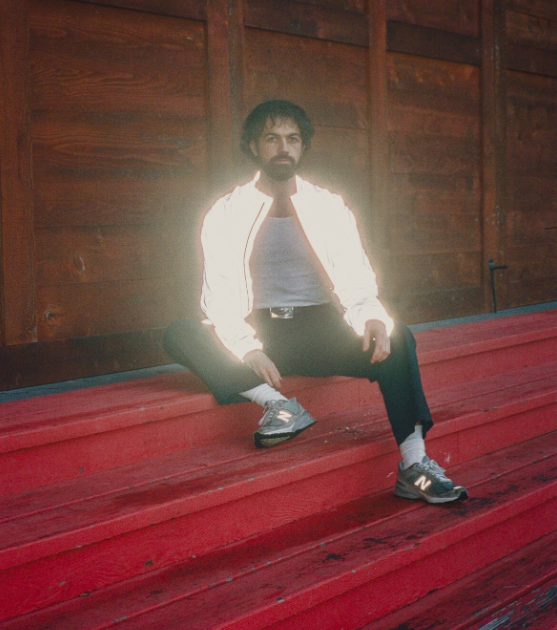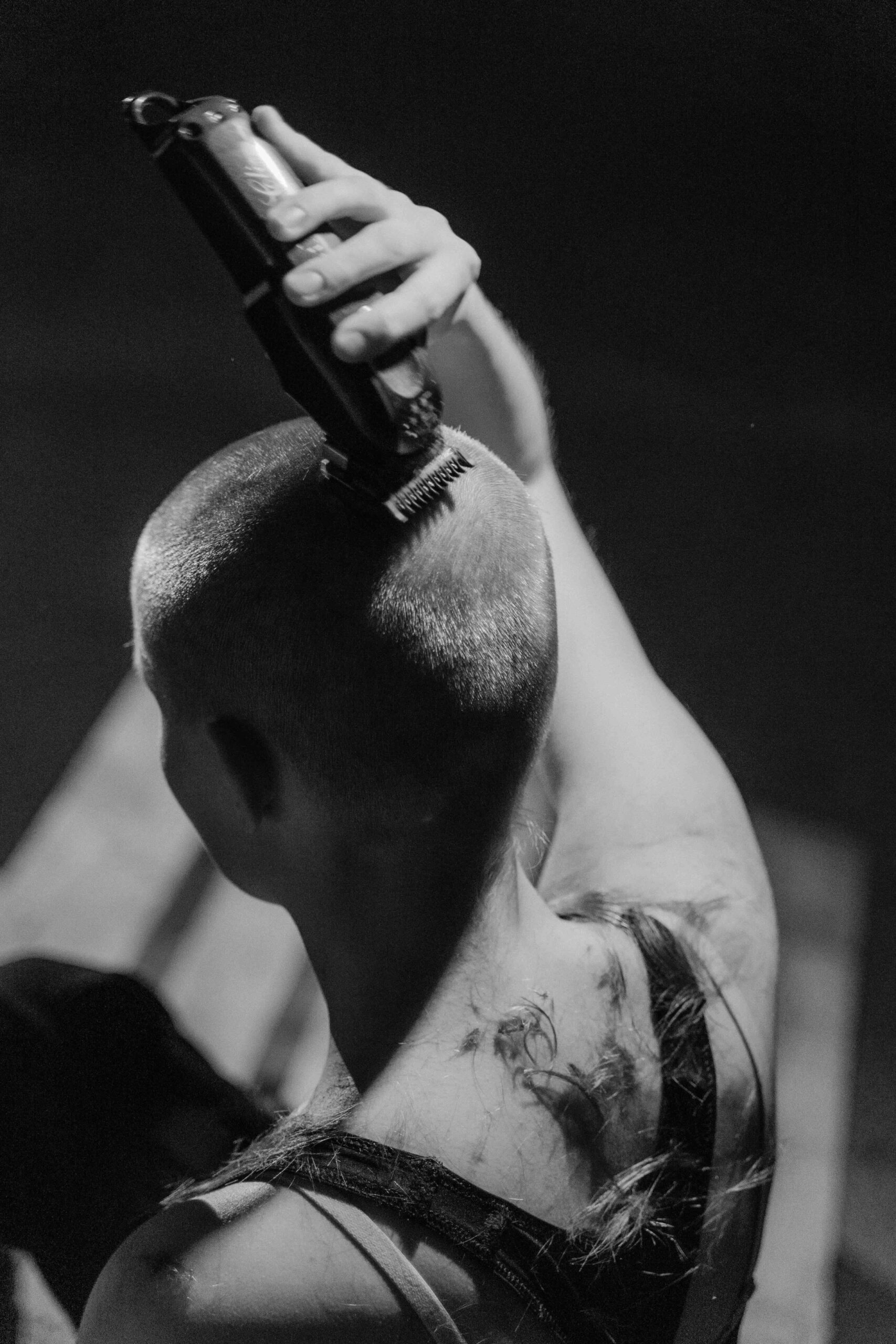
Netflix FYSEE 'Mindhunter' TV Show Panel, Los Angeles, CA, USA - 01 Jun 2018
Photo by Eric Charbonneau (Shutterstock)
There’s a scene in episode six of Mindhunter ‘s season two wherein detective Holden Ford, played by Jonathan Groff, tells the police chief in Atlanta that all serial killers want a lasting story: a mythos.
His tone implies that this is something ultimately distasteful, something to manipulate for the sake of coercing the killer to make a mistake. The irony, of course, is that Mindhunter‘s entire existence creates that mythos for real-life serial killers. I’m far from the first to say that elevating murderers to mythical status for the sake of sensationalism is irresponsible and vapid.
So is Mindhunter getting at something deeper than simply depicting real-life serial killer investigations with unparalleled accuracy? If so, what is it? Let’s explore the following questions:
1. Why do we care so much about Charles Manson?
After watching Once Upon A Time In Hollywood, I (and everyone else on Twitter) heard the news that Damon Herriman, who plays Charles Manson in that film, was also going to be playing Manson in the new season of Mindhunter. So, I got my popcorn and binged the new season of Netflix’s Emmy-nominated show all the way through. I repeatedly watched the scene where detectives Holden Ford and Bill Tench (played by Jonathan Groff and Holt McCallany) go to meet Charles Manson for the first time. The dialogue in this scene is expertly crafted to mirror actual interviews with the serial killer, and Herriman’s mannerisms are equally similar, to a disturbing degree.
They did it. Producer David Fincher, director Andrew Dominik, and writers Pamela Cederquist and Liz Hannah made the single most compelling rendition of Charles Manson ever put to screen. So… now what? Did we learn something about the Manson case we didn’t know before? Did this scene give us the opportunity to look at Charles Manson himself with fresh, new eyes? Not really. The problem with mirroring real-life situations is that it leaves little room for a new, enlightening story.
But Mindhunter doesn’t seem interested in giving us a rounded exploration of the character of Charles Manson—they just wanted to blow our minds with how disturbingly similar Damon Herriman looks and acts like him. They want us to go: “Holy crap, did you see that swastika tattoo? It looks just like the real thing!”
2. Why do the serial killers have more depth and emotion than the detectives?
By the nature of the show, the characters who investigate the serial killers need to be emotionally tough enough to mentally withstand the horrible things these men have done, so that they can learn how to catch them. Right? But as the show progresses, the main cast (a.k.a. the good guy investigators) lacks emotional growth.
Holden Ford is the most emotionally numb of the cohort, focusing all his energy on breaking down the psychology of his serial killer subjects. We connect with him as our conduit, as he’s always the one pushing to learn more about how these killers think—something we are also desperate to know. Wendy Carr, a closeted psychology professor who consults with the FBI, is equally cold. She never breaks her rigid, fervent expression for a second, no matter what situation she’s in. Bill Tench has a little more of a softer side, being a family man with a warm, deep voice; we automatically connect with him. But his considerable personal struggles this season are thinly explored; he’s so grounded in practicality that we can only glean what he’s feeling and thinking by the number of cigarettes he burns through at a given time—or in a short monologue to one of his coworkers that finally clues in the viewer.
On the other hand, the show excels at portraying the emotional depths of serial killers. Let’s look at Manson again. He sees himself as a savior of sorts, picking up lost “children” and showing them love. “These children that come at you with knives, they’re your children,” he says, claiming that he didn’t manipulate them, he just “tried to help them stand up.” He’s all the more nefarious because he has a purpose: to care and nurture those lost and in need of refuge. Manson exists here as a physical manifestation of evil, the result of societal corruption that maybe all serial killers experience before turning to rape and murder. As inane and baffling as his rhetoric is, he channels real frustration with the status quo of the ’70s. He was an infamously disturbed and vile man, but Mindhunter consistently challenges our understanding of evil with layered depictions of serial killers.
3. Why is Trench’s wife so insufferable?
You can count the number of female characters with speaking roles in Mindhunter on one hand, so it’s disappointing that the female character with the second most screen time, Tench’s wife Nancy, is emotionally compromised throughout the entire run of the second season. Of course, it’s made clear why (before the traumatic incident with her son, she was perfectly normal). But episode after episode, her character is this bizarre combination of curt, combative, and completely unhinged.
It’s almost like the writers said, “Okay, Nancy needs to go crazy after her son does the thing, and everyone is going to understand and feel sympathetic towards her, because of this incredible trauma that’s befallen her.” And then they just kind of stopped writing her character from there. She doesn’t learn anything new from this experience, and her journey doesn’t impact the story at all. She’s just kind of there—being a mess, and being mean to our beloved detective Bill. But maybe Nancy’s spinout is so frustrating because of the severe juxtaposition between her and Bill. He is so painfully calm, logical, and reasonable. It makes you go: “Yea, Nancy! Can’t you see how nuts this is? Get a grip!” In the end, though, it’s not Nancy’s fault. It’s the writers.
4. Why is Netflix making so much content about murderers?
Making a Murderer. The Ted Bundy Tapes. Abducted in Plain Sight. I Am A Killer. Netflix’s original programming includes these and literally dozens of other true crime features available to stream on the platform right now. But why? Why so much? It’s easy to look back at Making a Murderer and the award-winning podcast Serial as the kick-off of the true-crime wave. Since then, there have been quite a few think-pieces criticizing the phenomenon; and with 151 million subscribers and counting, Netflix is one of our key suppliers, satiating our cravings to explore the psyches of murderers. There are a few obvious reasons why Netflix is going to cash in:
A. True crime is popular and will always attract eyeballs.
B. You don’t have to put work into the storytelling, since the material is already so salacious.
C. Production costs for docu-series are extremely low (compared to narrative shows like Stranger Things and House of Cards), so Netflix can expect a huge return on investment.
Mindhunter is a logical compromis since its budget is presumably very large and the storytelling is crafted meticulously. It’s a narrative show that works extremely hard to incorporate the serial killers’ real-life motives and behaviors as accurately as possible. But do we need this? Is this fixation on carnage and human depravity really necessary to create quality content? For a show that examines the darkest depths of the human psyche, Mindhunters is surprisingly light on emotional depth and instead leans heavily on tone and style. The cinematography is some of the best in Netflix’s repertoire of shows, and the neo-noir aesthetic is so damn consistent that I’d be surprised if they don’t actually win an Emmy next year.
But if we’re going to have a show that puts so much emphasis on real-life murderers and real-life victims, it should be expected that the same level of care and attention goes into leaving us, the 151 million potential viewers, with some sort of message. If you’re going to talk about it, have something to say. Sadly, I don’t think Mindhunter has much to say about its subjects other than: “Look how historically accurate we made Son of Sam’s face!” And that doesn’t feel like enough.
- Stanning Serial Killers: Twitter’s Ted Bundy vs. Charles Manson … ›
- Stranger Things Season 4: What Song Would Save You From Vecna? – Popdust ›
- Mindhunter Season 2: BTK, Charles Manson Creepily Enter the … ›
- All the ‘Mindhunter’ Season 2 Serial Killers and the Actors Who Play … ›
- ‘Mindhunter’ Season 2 Takes on Charles Manson, Other Killers … ›
- Mindhunter: David Fincher’s Charles Manson Is Same Actor as … ›
- Charles Manson Mindhunter Season 2 Appearance Explained … ›
- ‘Mindhunter’ Season 2 tackles Charles Manson, Atlanta Child Murders ›














